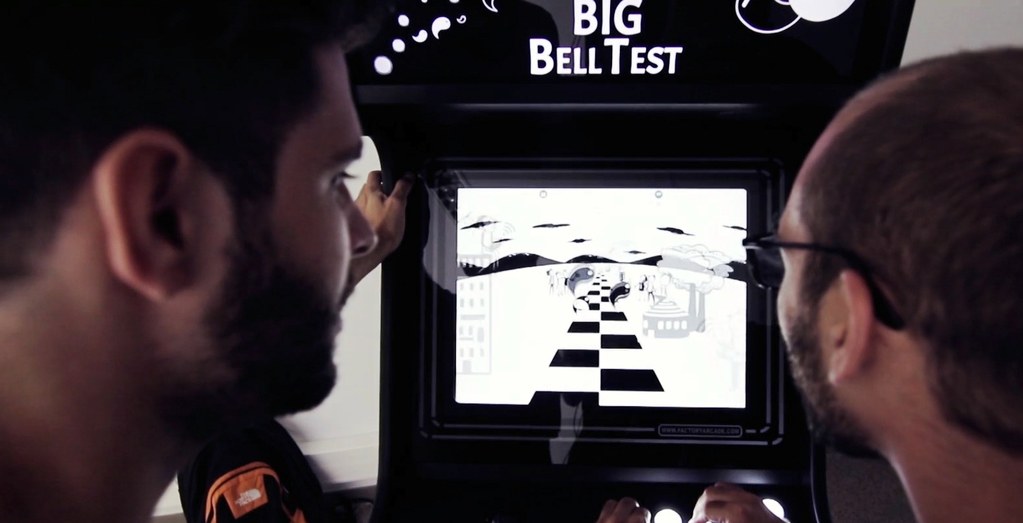By David Kaiser
May 9, 2018

The Big Bell Test probed quantum mechanics using crowdsourced inputs from volunteer video-game players.
Photograph Courtesy ICFO
The word “predictable” first entered the English language two centuries ago. Its début came in neither a farmer’s almanac nor a cardsharp’s manual but in The Monthly Repository of Theology and General Literature, a Unitarian periodical. In 1820, one Stephen Freeman wrote a dense treatise in which he criticized the notion that human behavior—seemingly manifest “amidst the conflicting, boisterous, unreasonable wills of men, all acting, as they feel they do, their various parts with complete freedom of choice”—somehow existed outside the domain of cause and effect. Freeman (“free man,” no less!) argued, instead, that human consciousness and our perception of free will must be subject to chains of causation. “What but this certainty, this necessity, can render any event, even such as depends on the free-will of intelligent agents, predictable?” he asked.